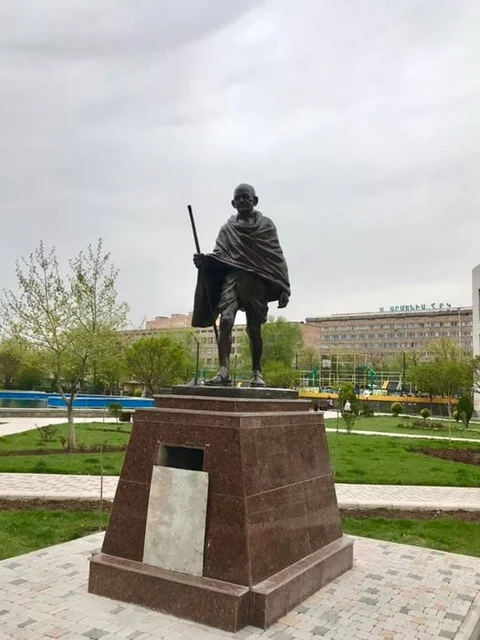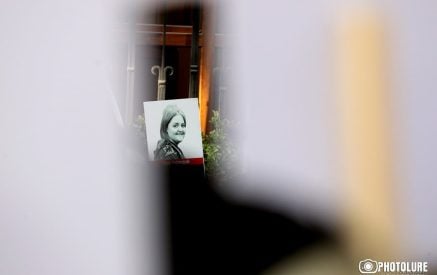Passions were ignited on Armenian Facebook yesterday over the installation of a statue of the famous 20th century politician, Mahatma Gandhi, in Yerevan. I have already said that if the installation of a statue causes controversy, it is better to refrain from that in order not to stir passions, especially in this troubled time we are living in.
It’s clear that Gandhi was not a saint or an angel, and he was a rather pragmatic politician. The steps he took were based on his fight against the British Empire for the independence of India. And those interests for a certain period coincided with the interests of the Ottoman Empire, then of Kemalist Turkey, and, consequently, contradicted our interests.
Yesterday, it was mentioned in several places that Gandhi welcomed the Armenian Genocide, but I think that is an exaggeration. I was unable to find anything to prove that. His philosophy is close to my heart, but it is not an argument in favor of installing a statue. It was not worth engaging the public in such a tense moment with such a secondary issue.
But the discussion itself reveals certain features of our political culture, in particular, the fact that we demand from past and present world leaders that they be guided by our interests only because justice and truth are on our side. And when Gandhi, Churchill, Trump, Lenin, Stalin, or Putin act in the interests of their own countries, we become somewhat upset and start complaining about the world and our bitter fate. (Suppose some of the representatives of the Russian delegation to the PACE were against the inclusion of our captives in the agenda of the plenary session).
Read also
In our ‘plundered’ state, perhaps it is the right time to give up emotional approaches, study the experience of nations and states in our situation (for example, the losers in the First and Second World Wars), what steps they have taken based on ‘real politics,’ what sectors they were developing, and what allies they were trying to gain. Otherwise, our society’s attitude is to be offended by the world, and our authorities’ attitude (despite the slanderous rhetoric) is ‘well, this is it, there is no other way.’
Aram Abrahamyan





















































